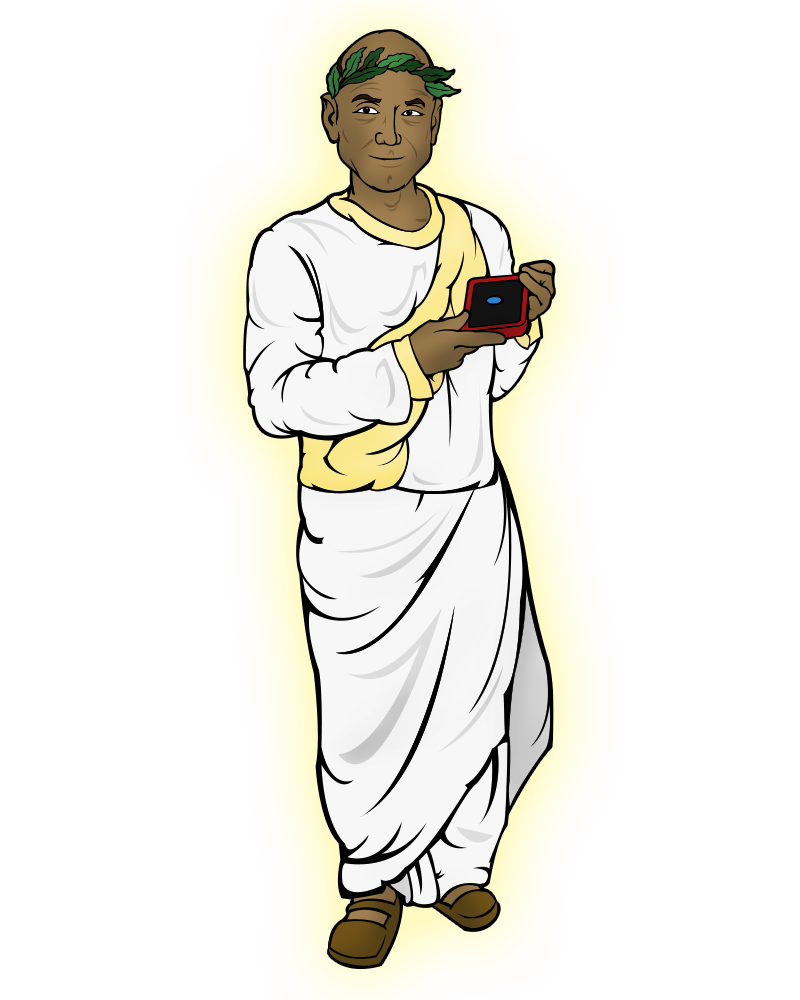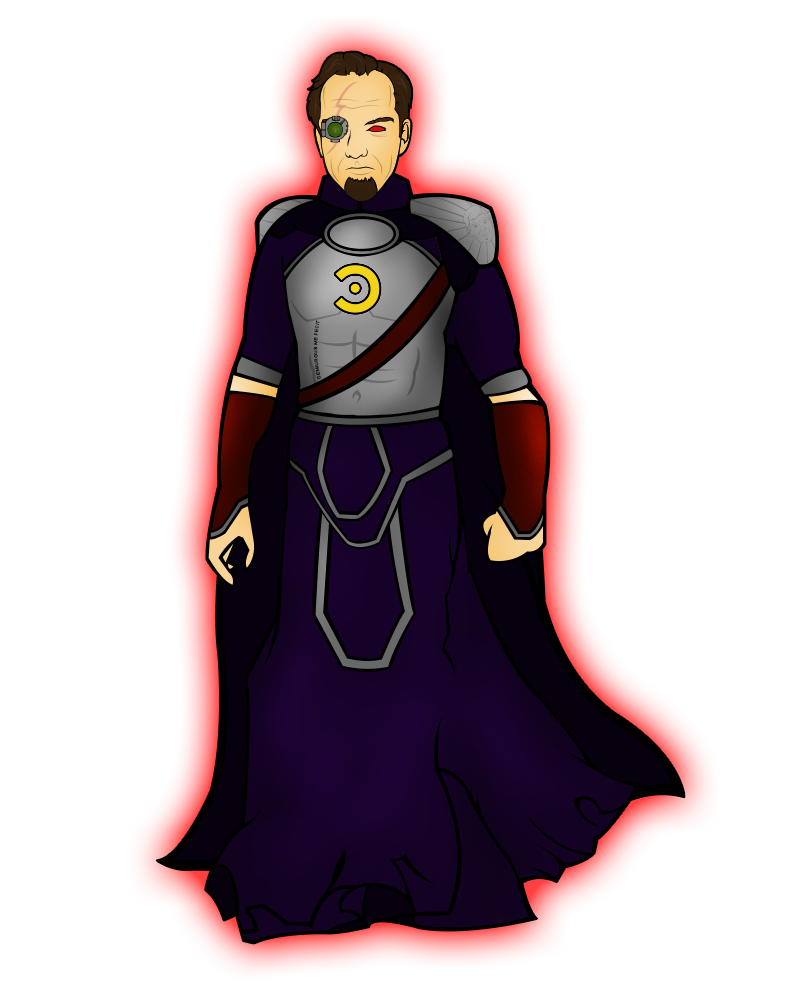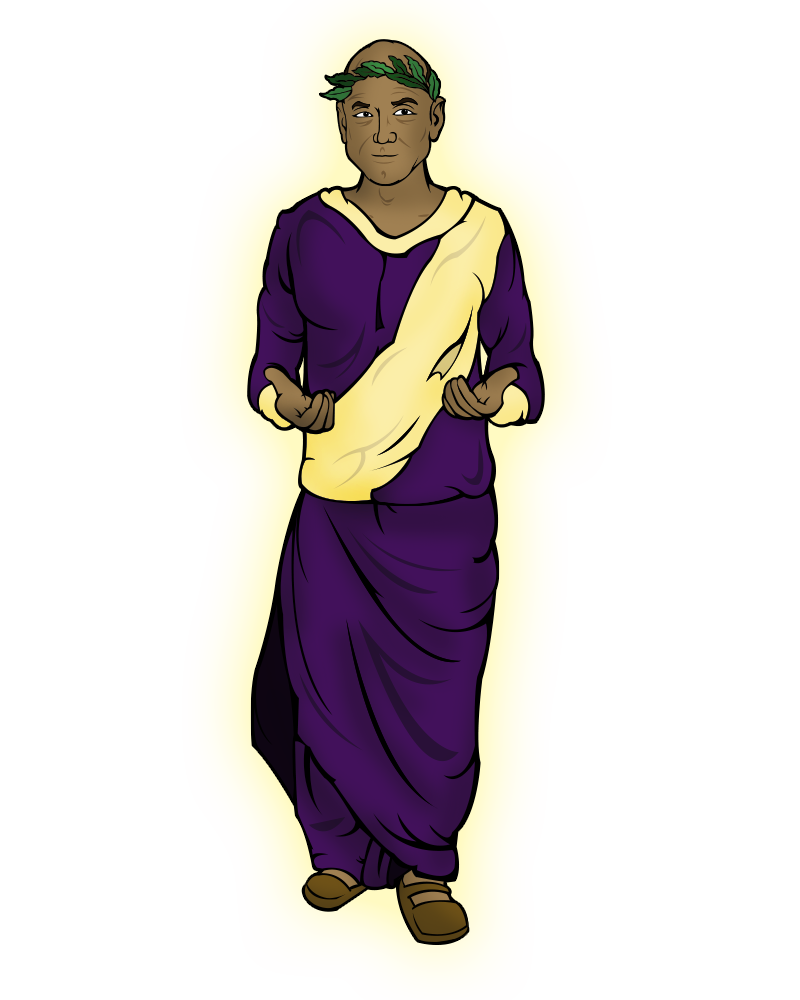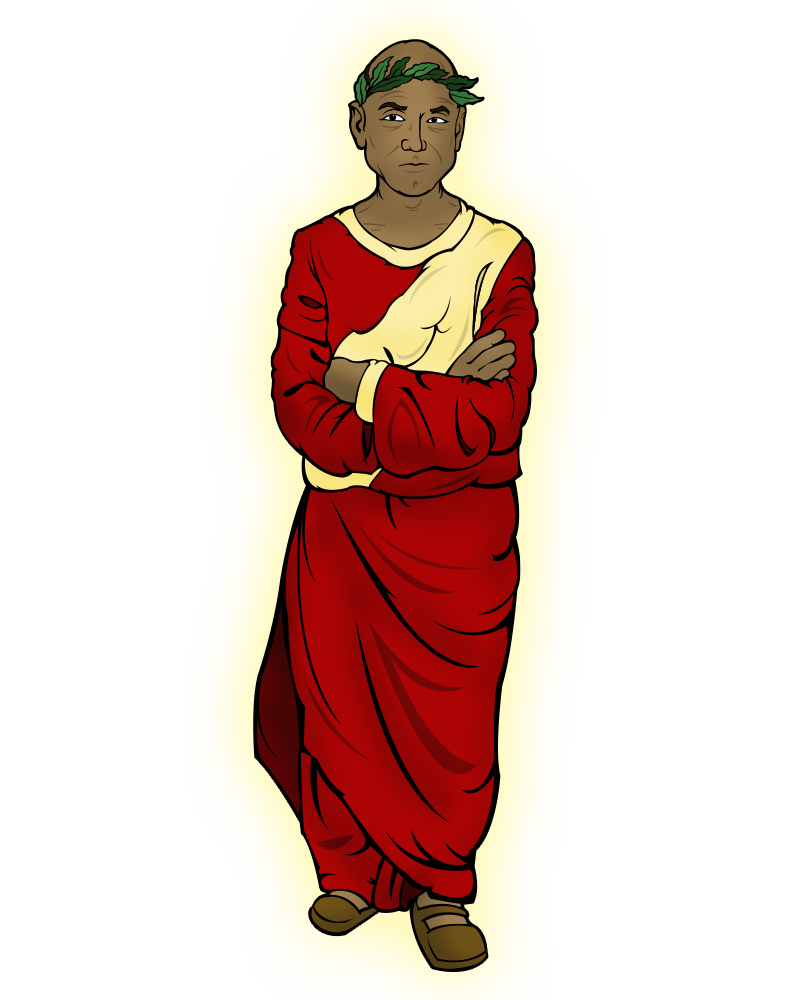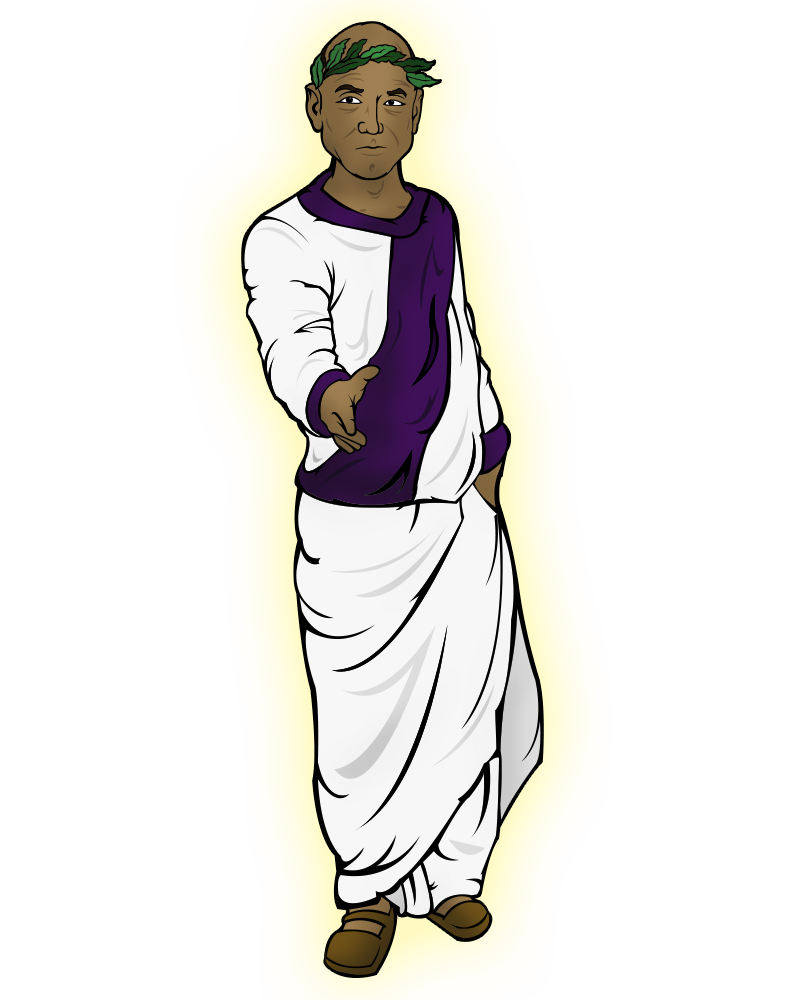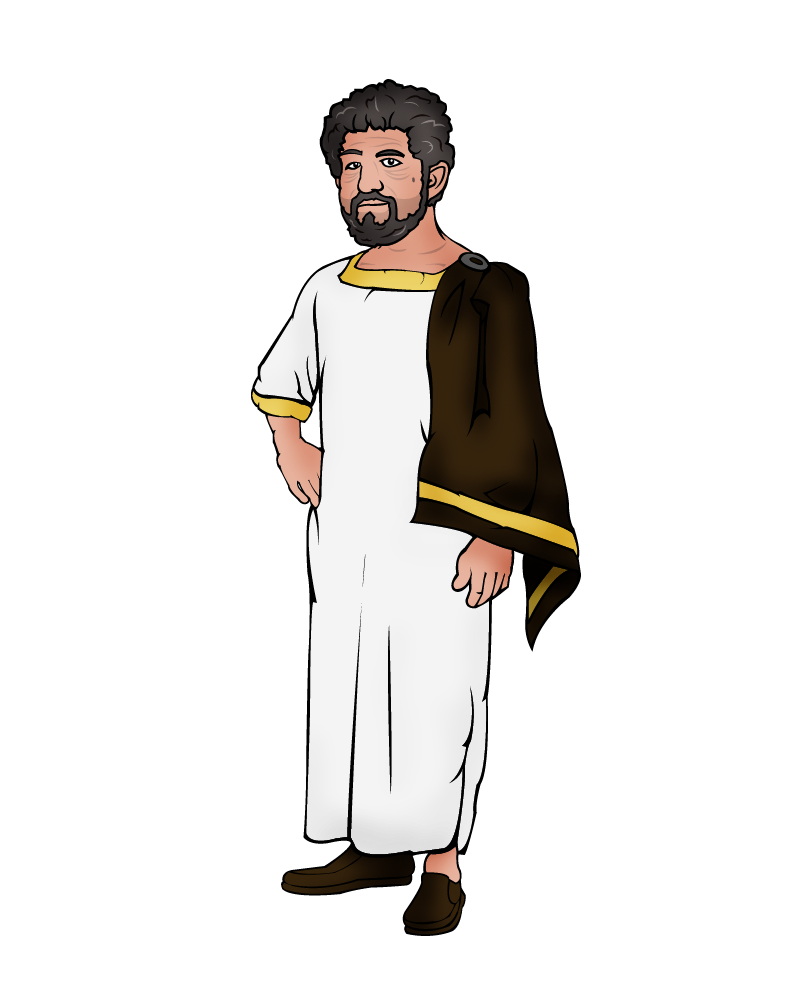| Image |
Name |
Info |
First Appearance |
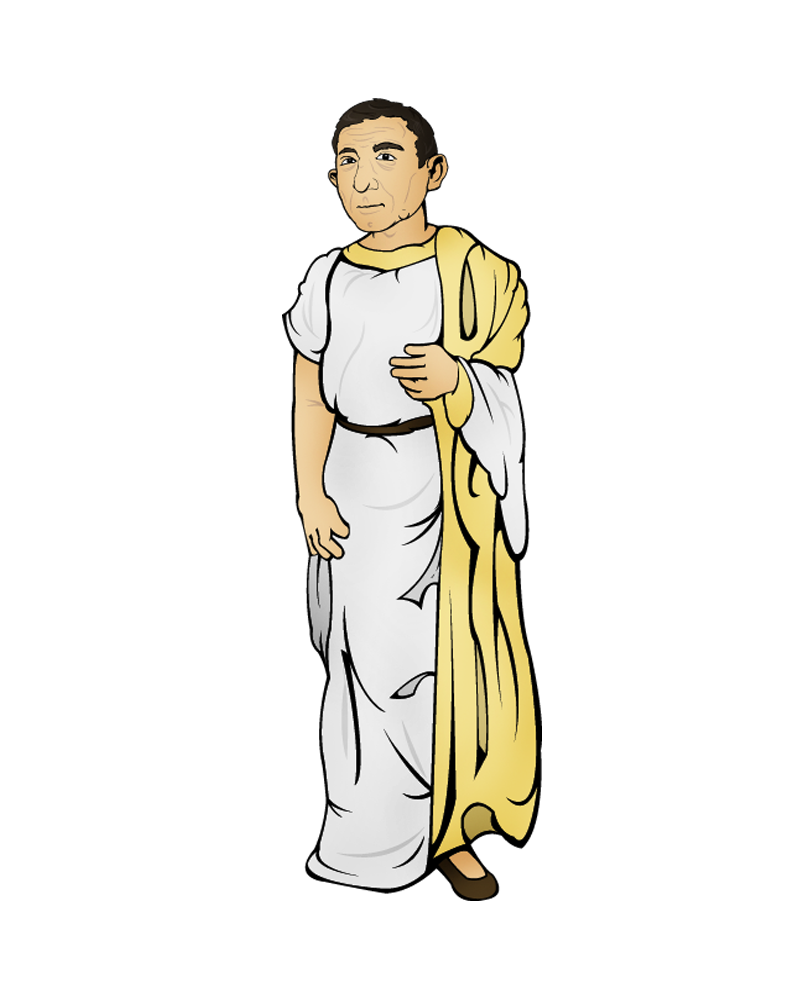 |
Lucius Caecilius Iucundus |
Lucius Caeciius Iucundus is a wealthy banker in the town of Pompeii. He is the father of Tiberius. He is also a loyal man of the principate and the financial stability that a strong leader brings. |
1.3 |
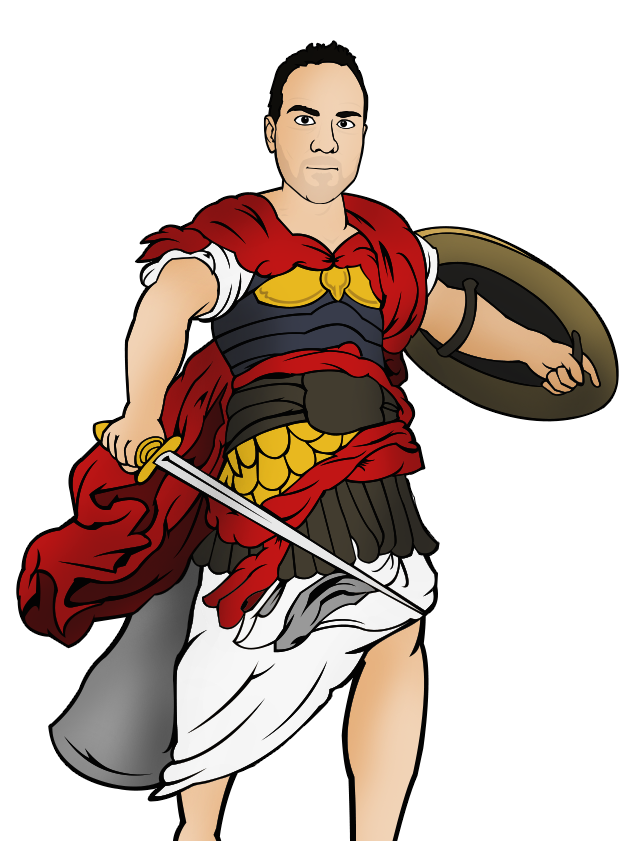 |
Aenēās |
Aenēās is the legendary hero of Vergil's Aeneid. He fled from the fires of Troy, wandered around the Mediterranean, and eventually landed in Italy where he went on to lay the foundations of the Roman people.
|
4.3 |
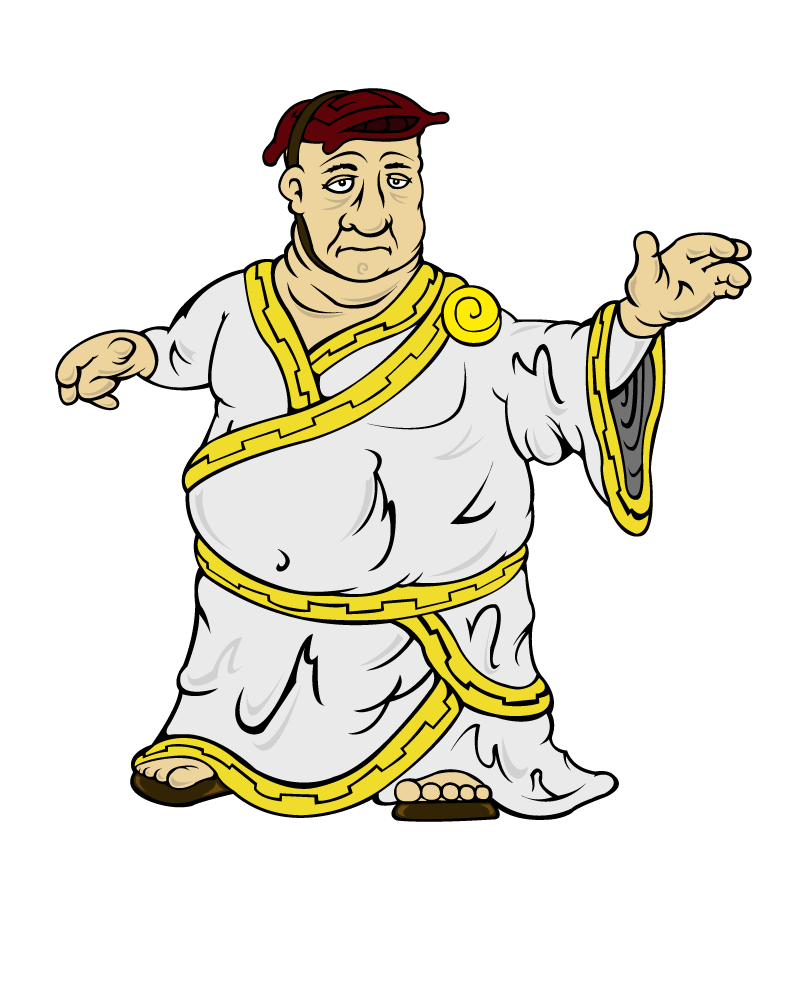 |
Gāius Plīnius Secundus |
Pliny the Elder was a Roman author, naturalist, philosopher, and a renowned naval and army commander. Launching from the port of Misenum, he sailed straight towards the volcanic eruption of Mt. Vesuvius in an attempt to rescue those stranded in the costal towns. His nephew, Pliny the Younger, recounted the heroic deeds of his uncle in a letter to the author Tacitus. |
6.3 |
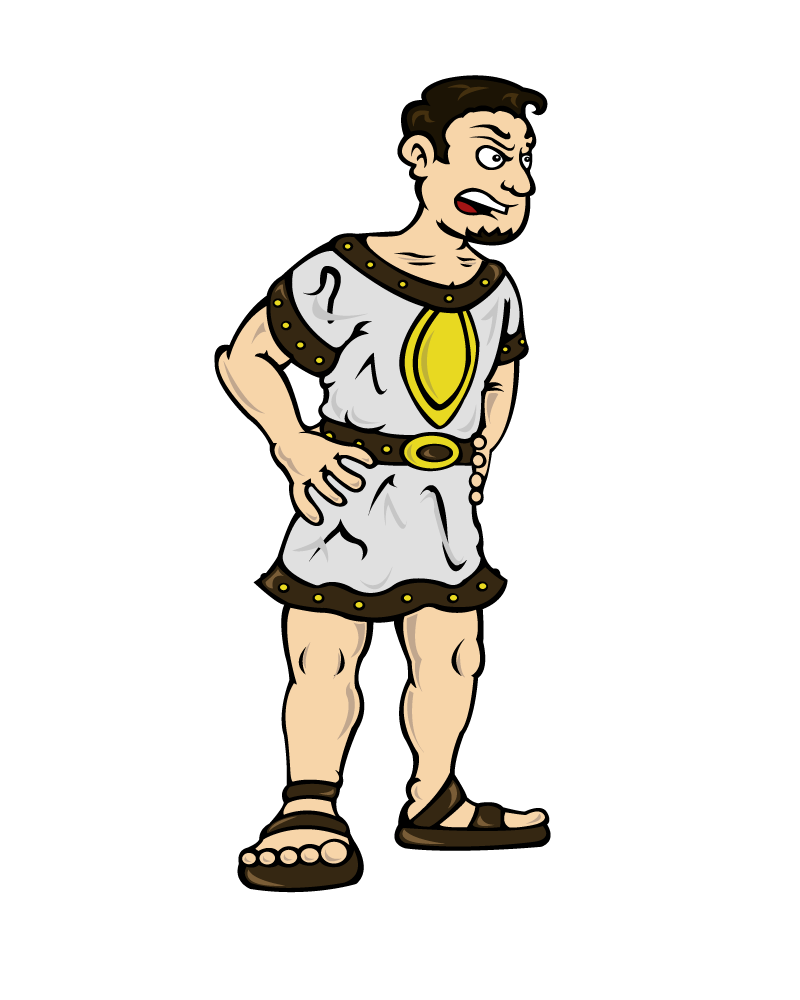 |
Rōmulus |
Rōmulus was the son of Mars and the legendary founder of Rome, having killed his twin brother in a dispute over where to build the city. He then goes on to create the Senate, the first legion, and serves as Rome's first king. |
7.2 |
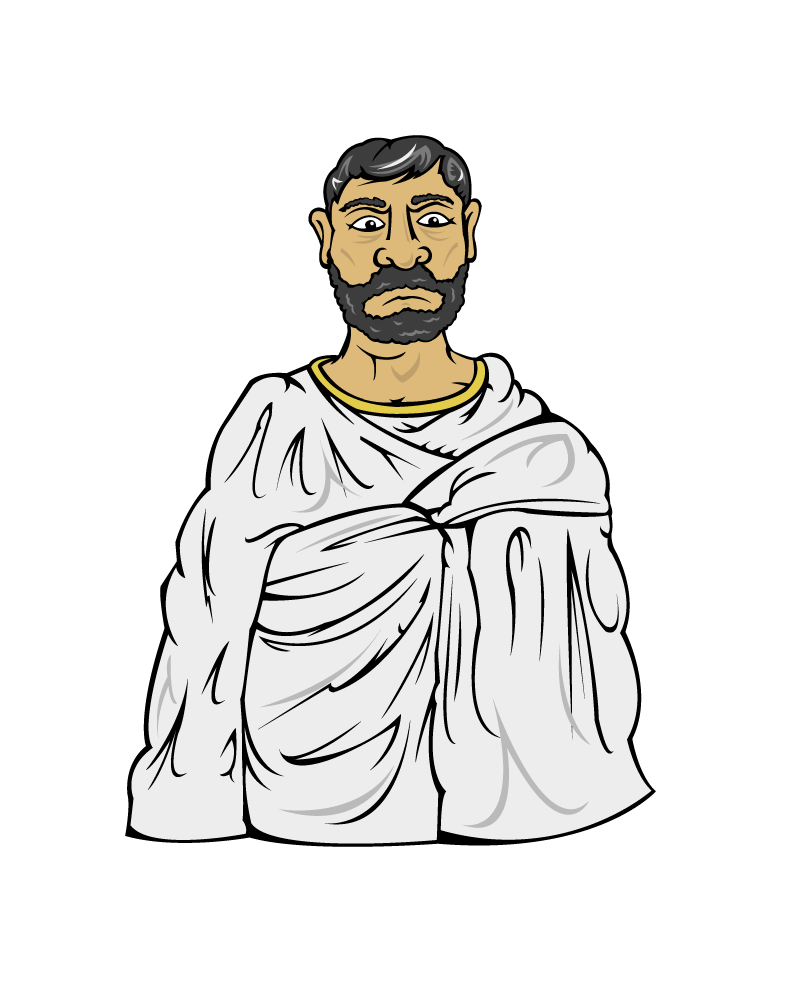 |
Lucius Junius Brutus |
One of the legendary founders of the Roman Republic after he drove out the last king of Rome, Tarquinius Superbus, after the assault on Collatīnus' wife, Lucretia. He then served as one of the first consuls of Rome in 509 BCE. |
9.3 |
 |
Gāius Salvius Līberālis |
Salvius was a well-educated lawyer and senator in Rome, holding many offices, priesthoods, and military positions before he was sent to Britain to serve as an aide to the governor, Gnaeus Julius Agricola. In Operation LAPIS, Salvius is a known agent of the Societas Potentium. |
10.2 |
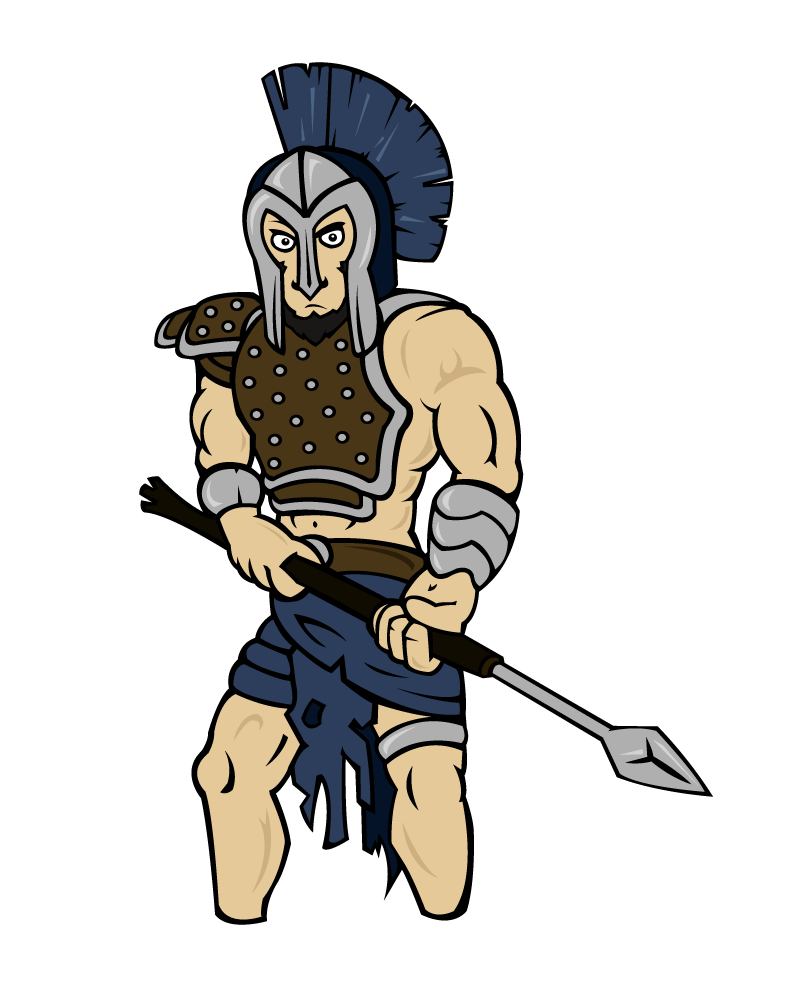 |
Brutus of Troy |
Legendary descendant of the Trojan hero Aenēās, known in medieval British legend as the eponymous founder and first king of Britain. In Operation LAPIS, Brutus of Troy holds a secret to unlocking the location of the LAPIS. |
15.2 |
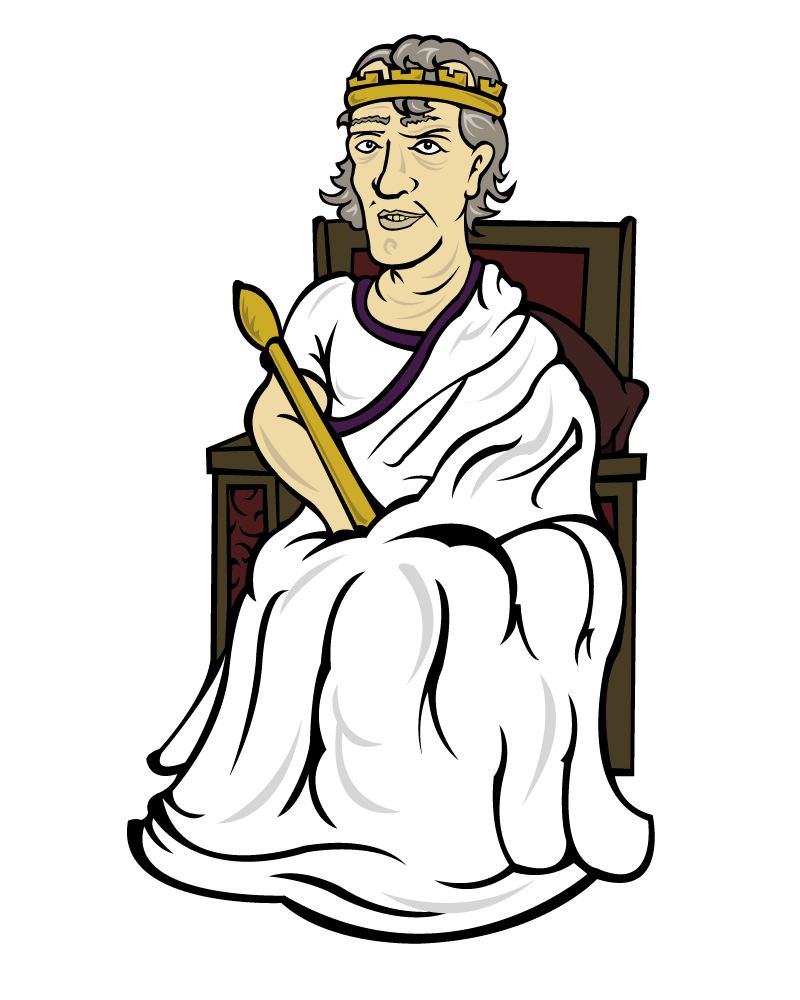 |
Tiberius Claudius Cogidubnus |
1st-century king of the Regnensestribe in early Roman Britain. In Operation LAPIS, Rex Cogidubnus is blindly faithful to all Romans whom he encounters. |
16.1 |
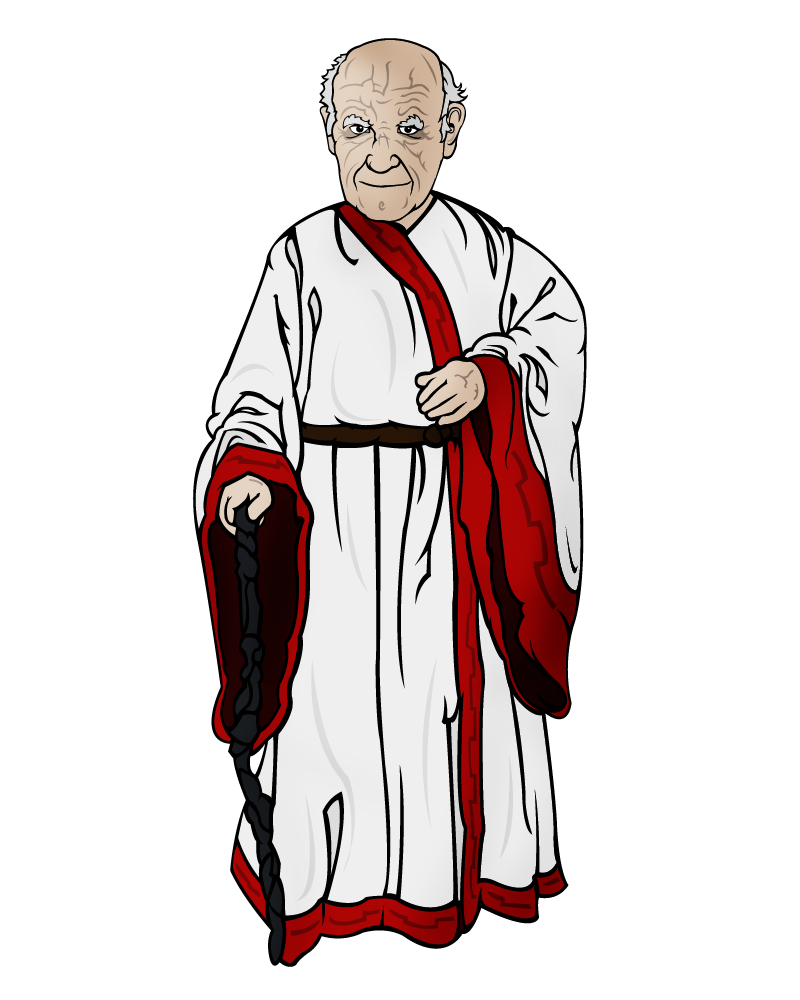 |
Catō the Elder |
Roman statesman, general, and author. Renowned for his conservatism and strict adherence to ancient customs. Famous in his later years for declaring repeatedly his opinion in the Senate: "Ceterum censeō Carthāginem esse delendam." (Moreover, I advise that Carthage must be destroyed.) |
16.3 |
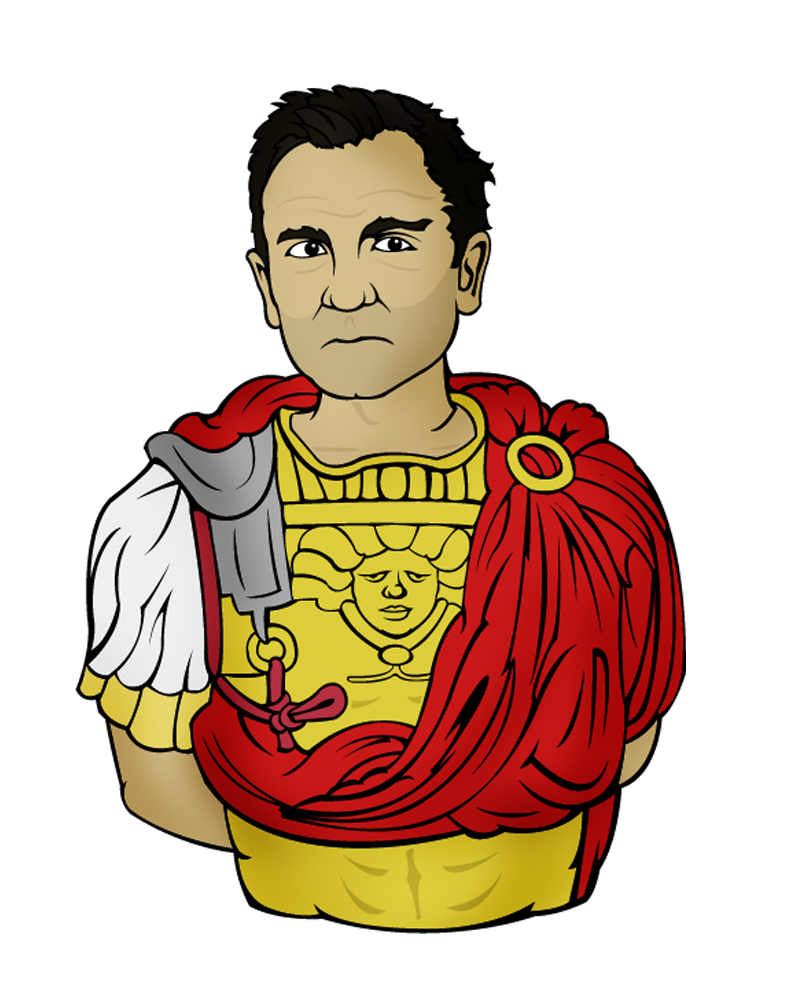 |
Publius Cornēlius Scīpiō Aemeliānus |
A leading general and politician of the ancient Roman Republic. As consul he commanded at the final siege and destruction of Carthage in 146 BC, and was a leader of the senators opposed to the Gracchi in 133 BC. |
17.1 |
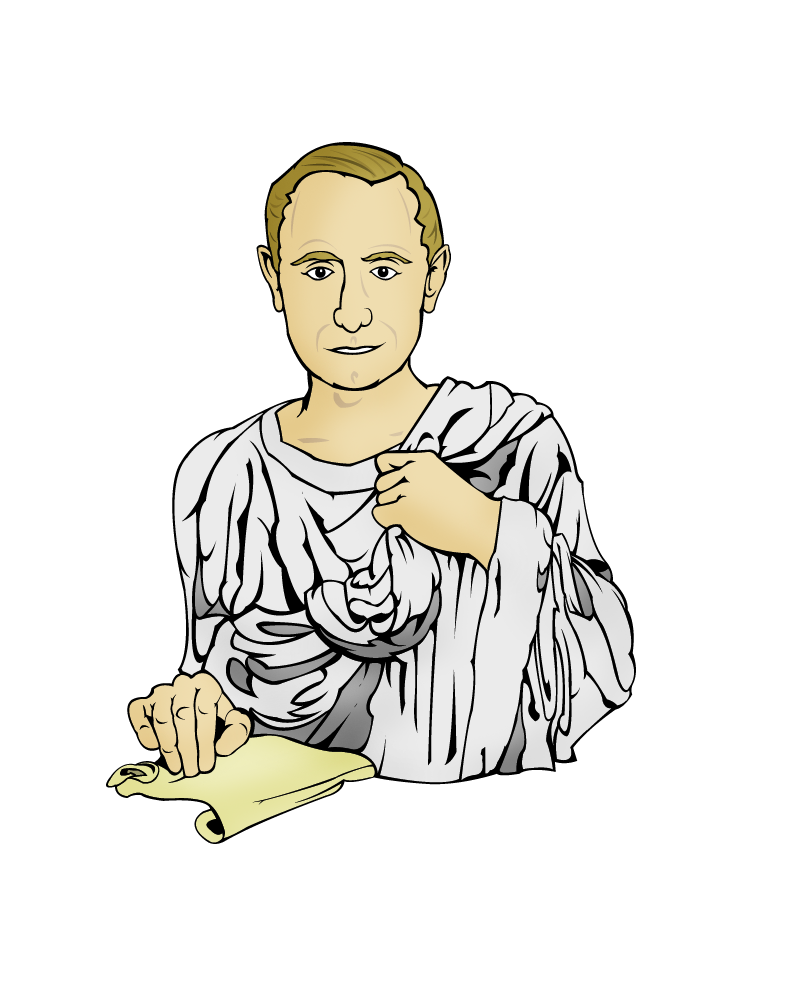 |
Gāius Sempronius Gracchus
|
A Roman Populāris politician in the 2nd century BC and brother of Tiberius Sempronius Gracchus. His election to the office of tribune in the years 123 BC and 122 BC and reformative policies while in office prompted a constitutional crisis and his death at the hands of the Roman Senate in 121 BC. |
18.1 |
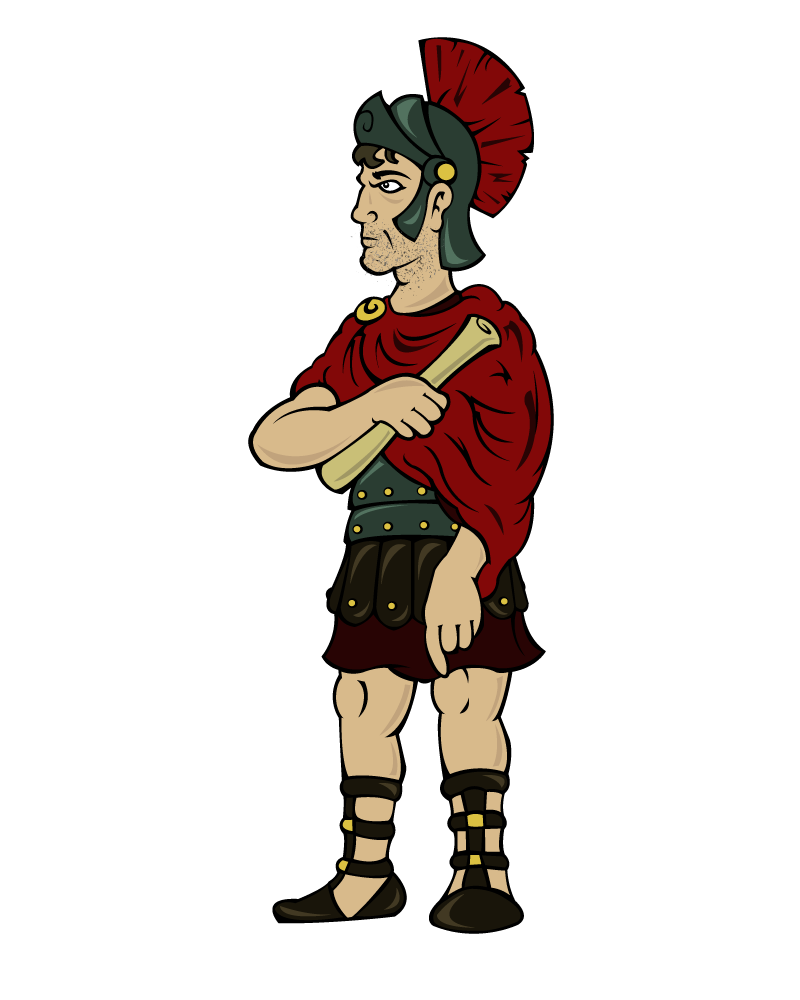 |
Gnaeus Iulius Agricola |
First appointed by Vespasian, he was the commander of the Roman campaigns and later served as governor in Britannia. Agricola was immortalized in the writings of his son-in-law, the famous historian Tacitus. In Operation LAPIS, he is a sworn Militēs Lapidis agent. Known for his integrity, he helps the Recentiī in Britannia, while they protect him from Salvius’ henchmen. |
19.1 |
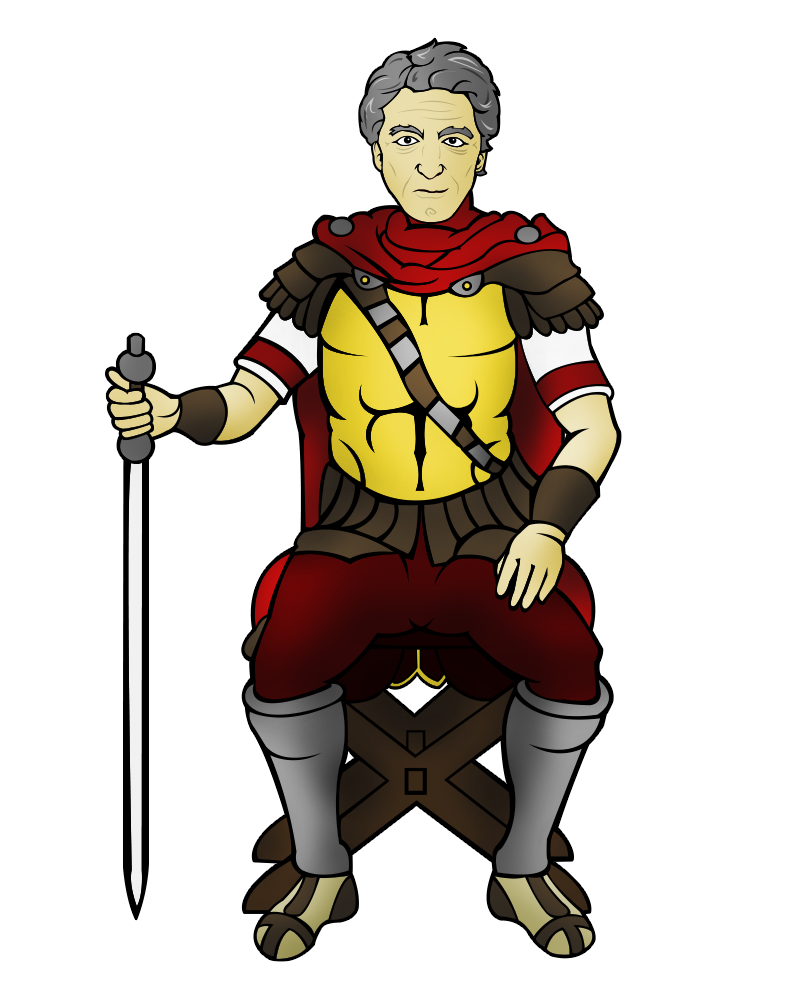 |
Lucius Cornēlius Sulla Fēlix |
A Roman general and conservative statesman, famous for his capture of Jugurtha, victories in the Social War, and his marches on Rome to claim the dictatorship in order to enact sweeping reforms. |
19.2 |
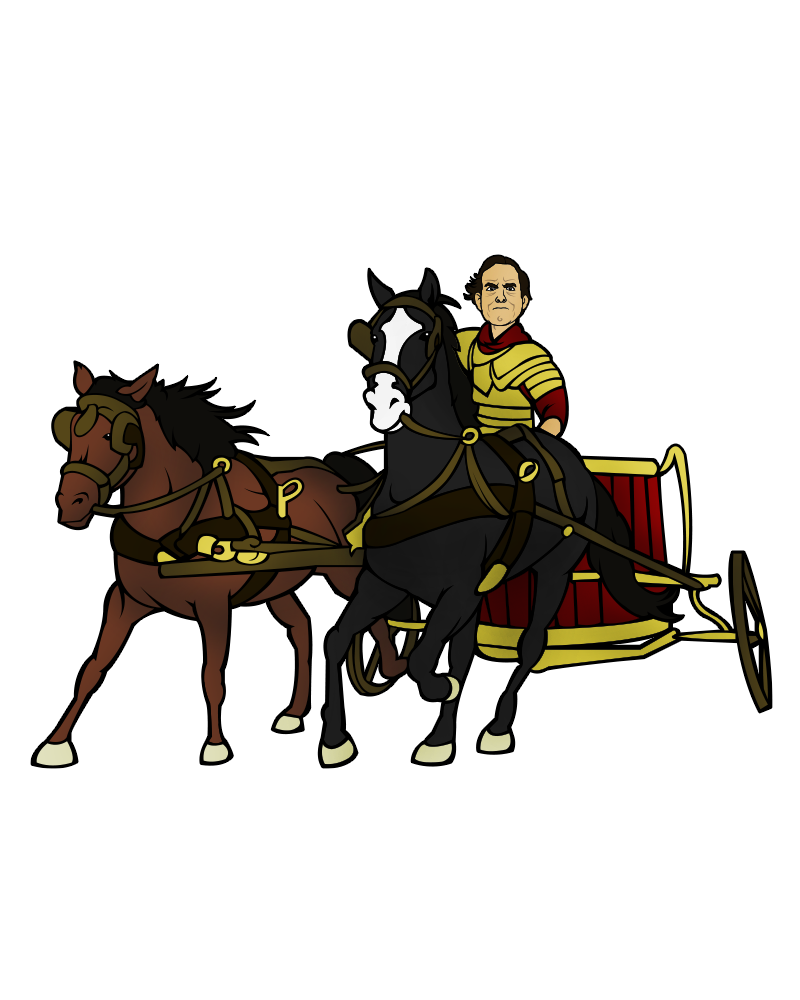 |
Gāius Marius |
Famous Roman general and statesman, known for his important reforms of the Roman army, including recruiting landless citizens to serve as professional soldiers. Marius held the consulship an unprecedented seven times. |
19.2 |
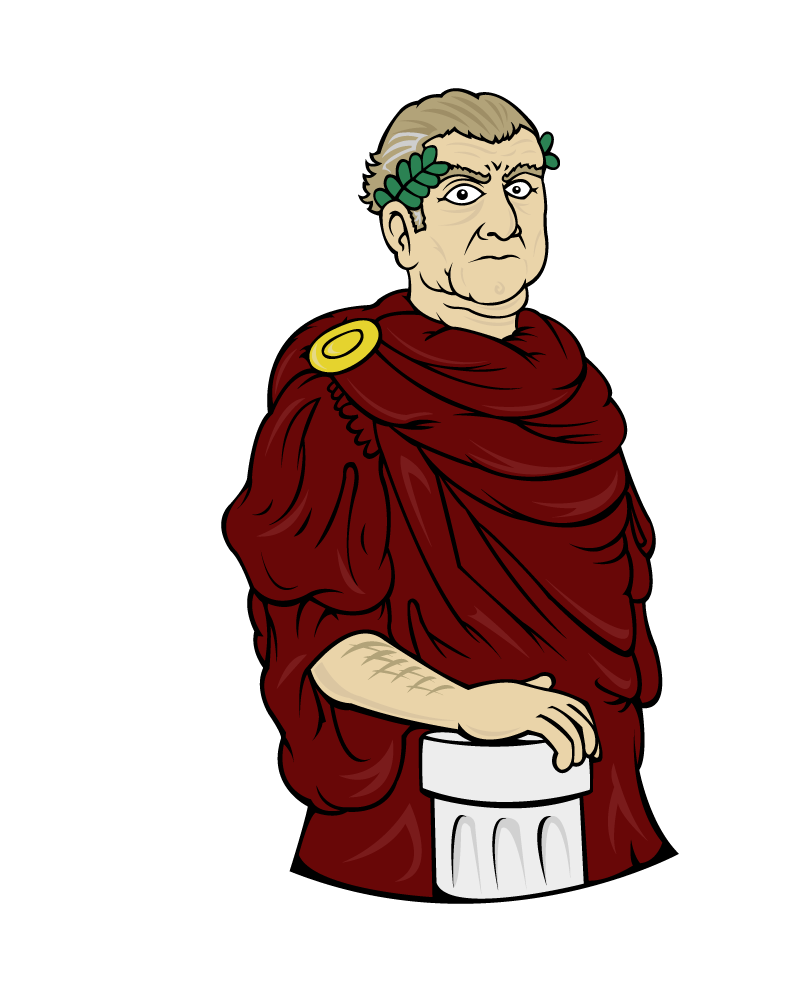 |
Gāius Iulius Caesar |
Roman general, politician, author, and dictator. Caesar lead the campaigns in Gaul which brought about Roman conquest of the area. He later fought in a civil war against Pompey the Great and was assassinated on the now famous Ides of March (March 15th), 44 BCE. |
21.1 |
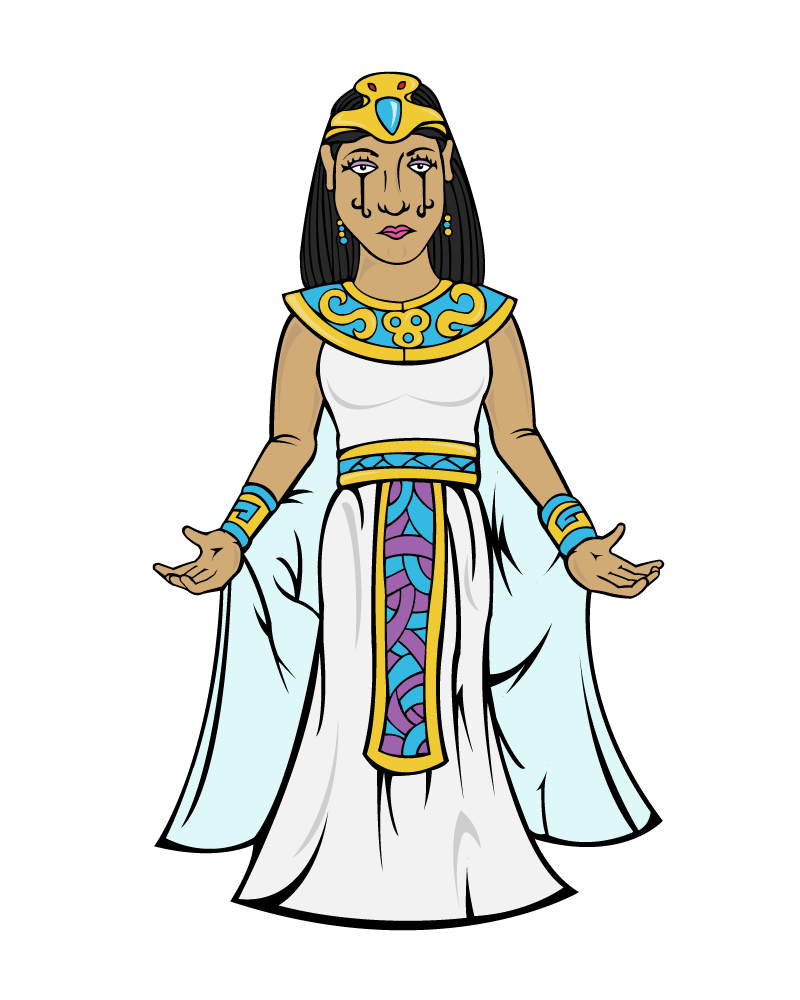 |
Cleopatra |
Last pharoah of Egypt and marked the end of the Ptolemeic Dynasty, Cleopatra was supported by Julius Caesar in a civil war against her brother, and then later aligned with Marc Antony against Octavian. |
22.1 |
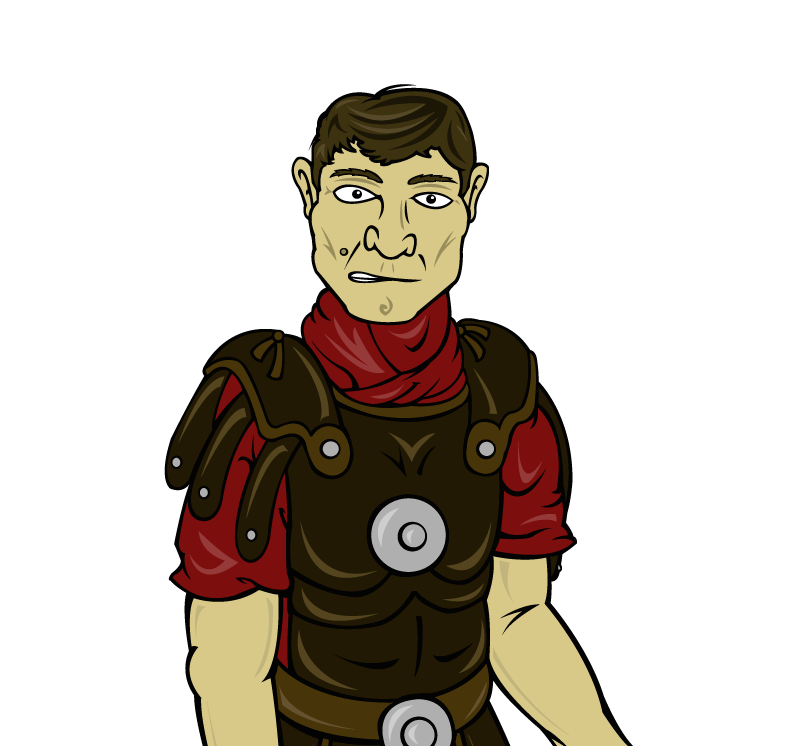 |
Marcus Antōnius |
A Roman politician and general. As a military commander and administrator, he was the right hand man of Julius Caesar. After Caesar's assassination, Antony formed an official political alliance with Octavian and Lepidus, known as a Triumvirate. |
22.1 |
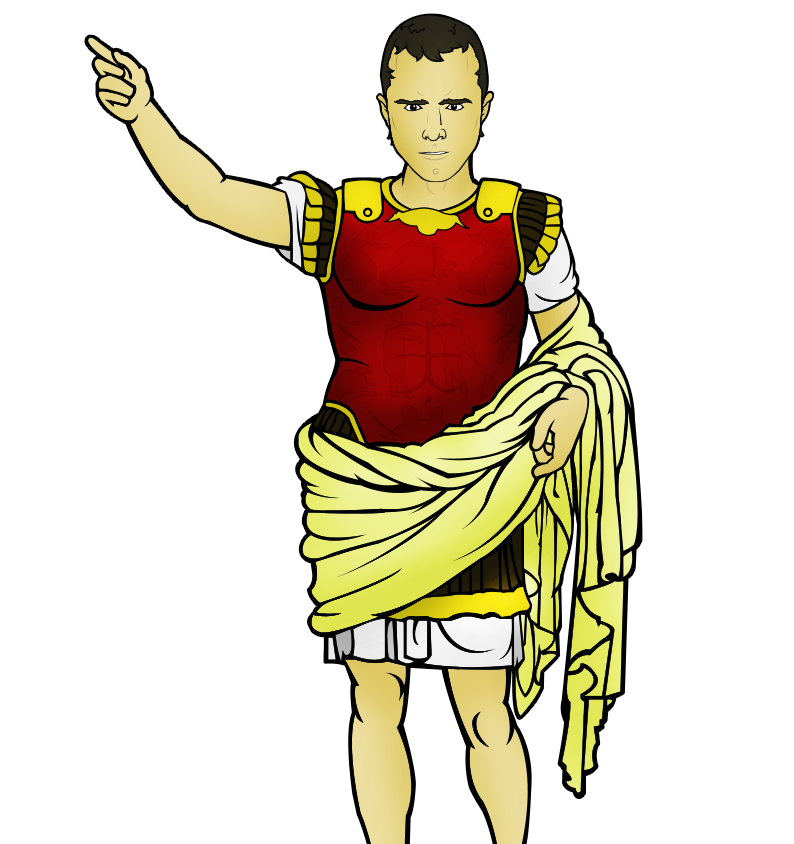 |
Gāius Iulius Divī Fīlius Caesar Octaviānus Augustus |
|
22.2 |
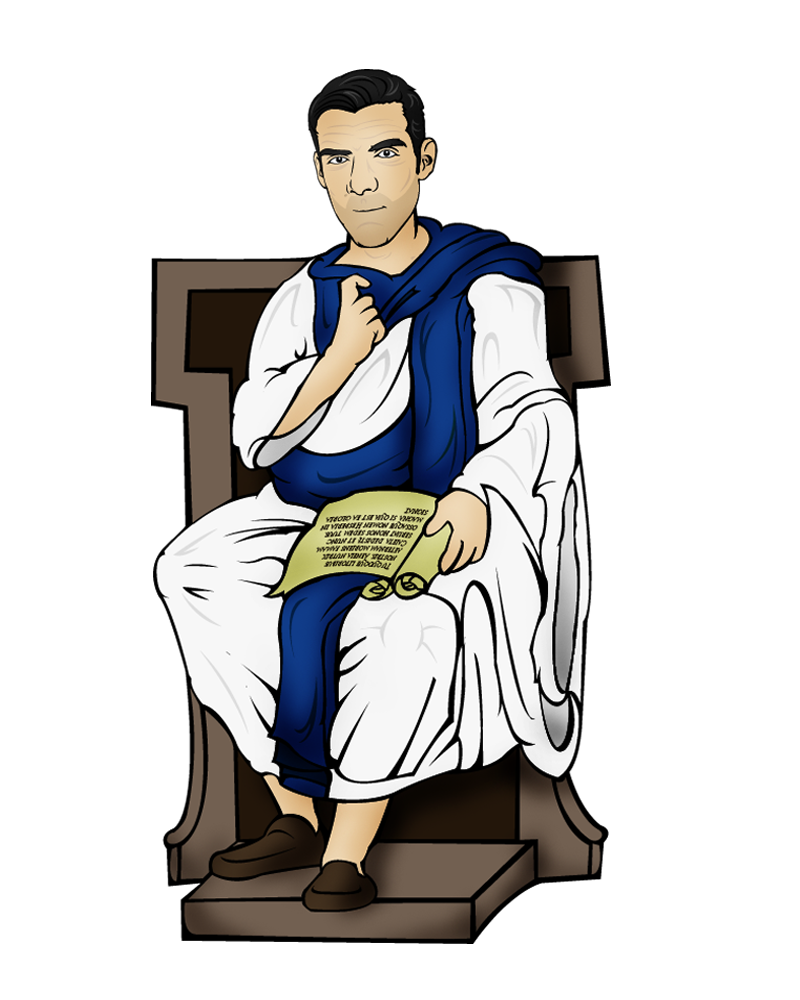 |
Publius Vergilius Maro
|
An ancient Roman poet of the Augustan period. He is known for three major works of Latin literature, the Eclogues, the Georgics, and the epic Aeneid. Vergil is traditionally ranked as one of Rome's greatest poets. |
24.3 |
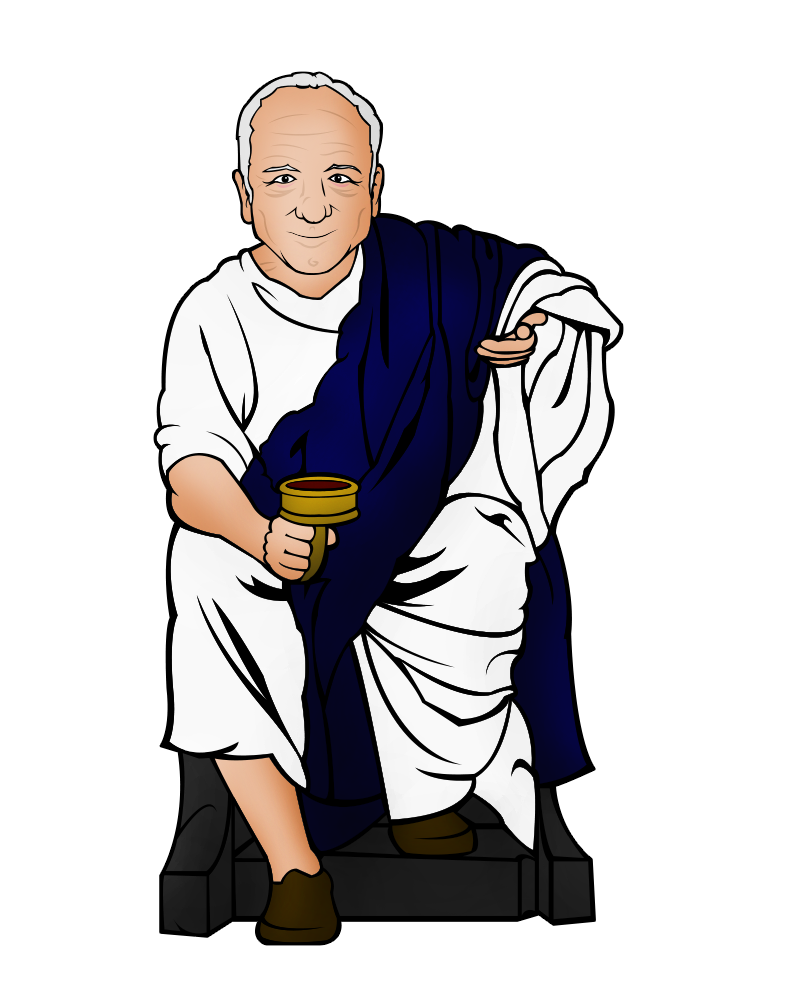 |
Quintus Horātius Flaccus |
|
25.2 |
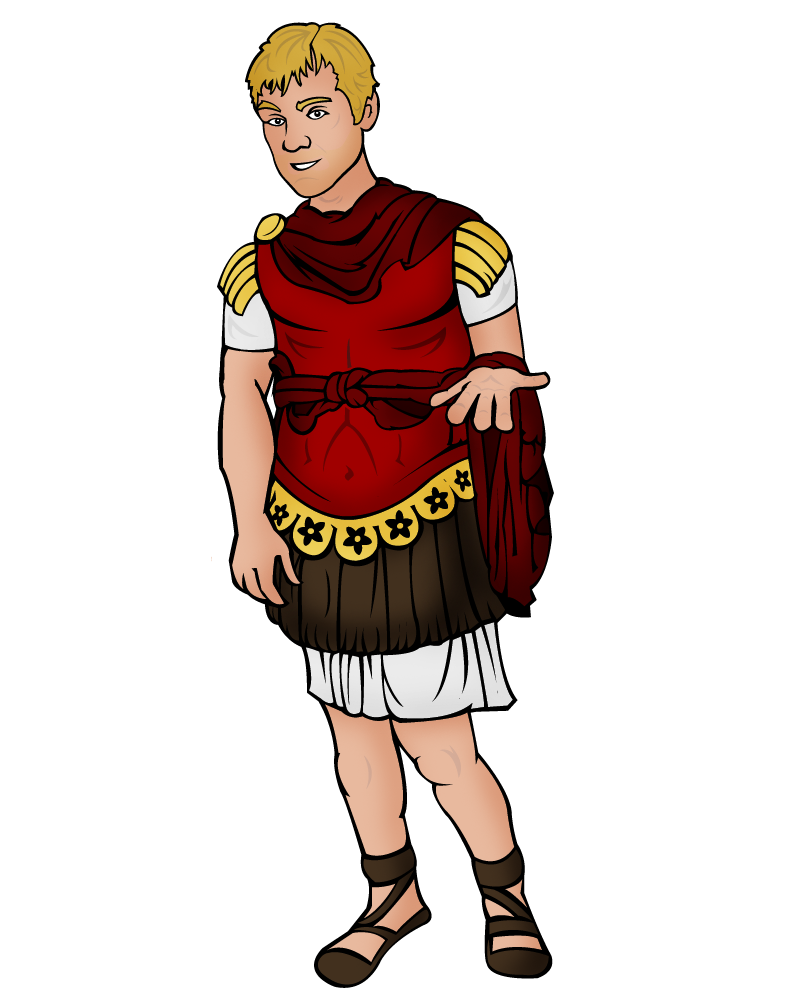 |
Nero Claudius Caesar Drusus Germānicus |
Nero was Roman Emperor from 54 to 68, and the last in the Julio-Claudian dynasty. He is most famous for his massive palace complex known as the Domus Aurea. |
27.1 |
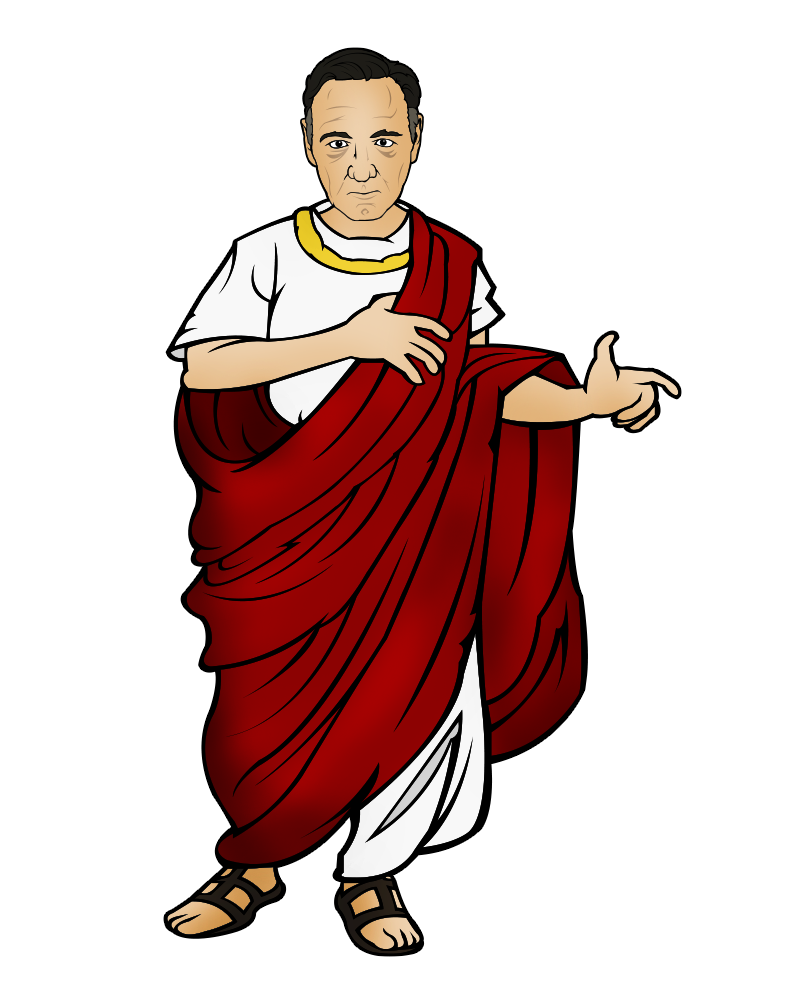 |
Gaius Calpurnius Piso |
|
27.2 |
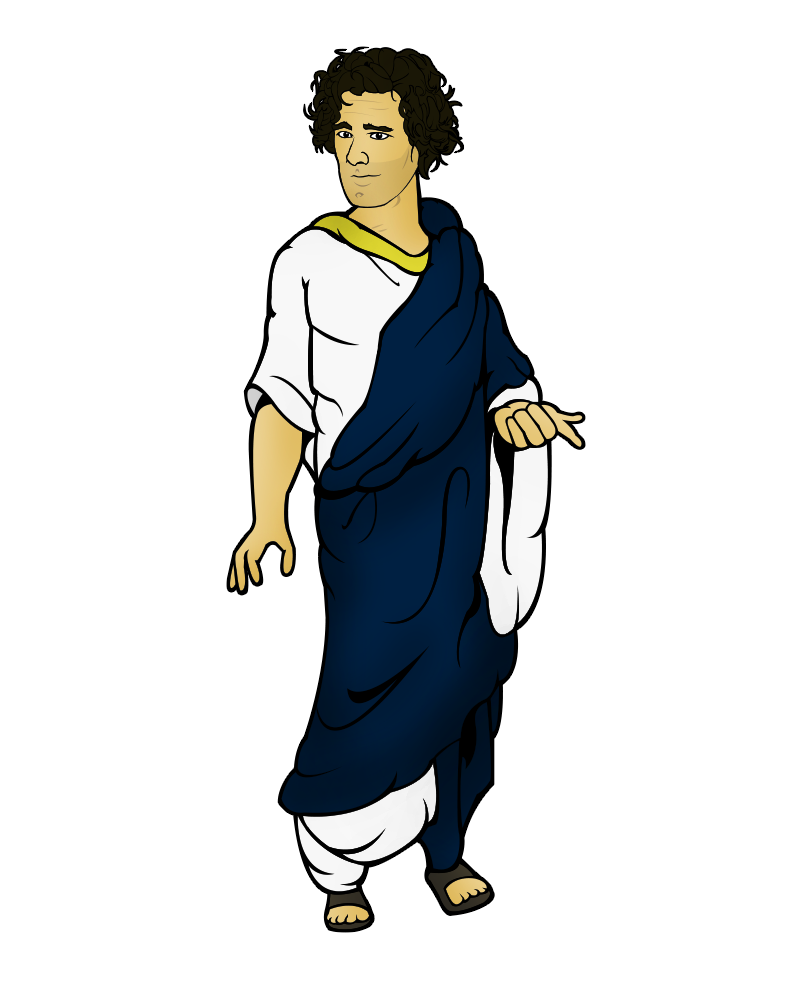 |
Marcus Annaeus Lucanus |
|
27.2 |
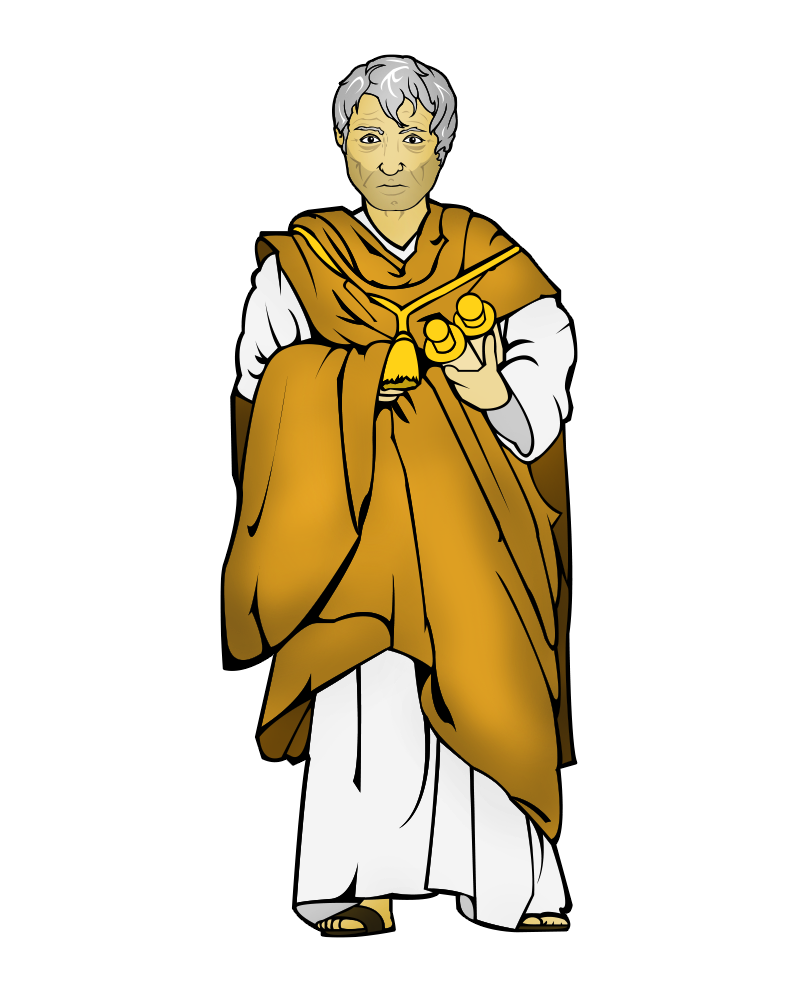 |
Lucius Annaeus Seneca |
|
27.2 |
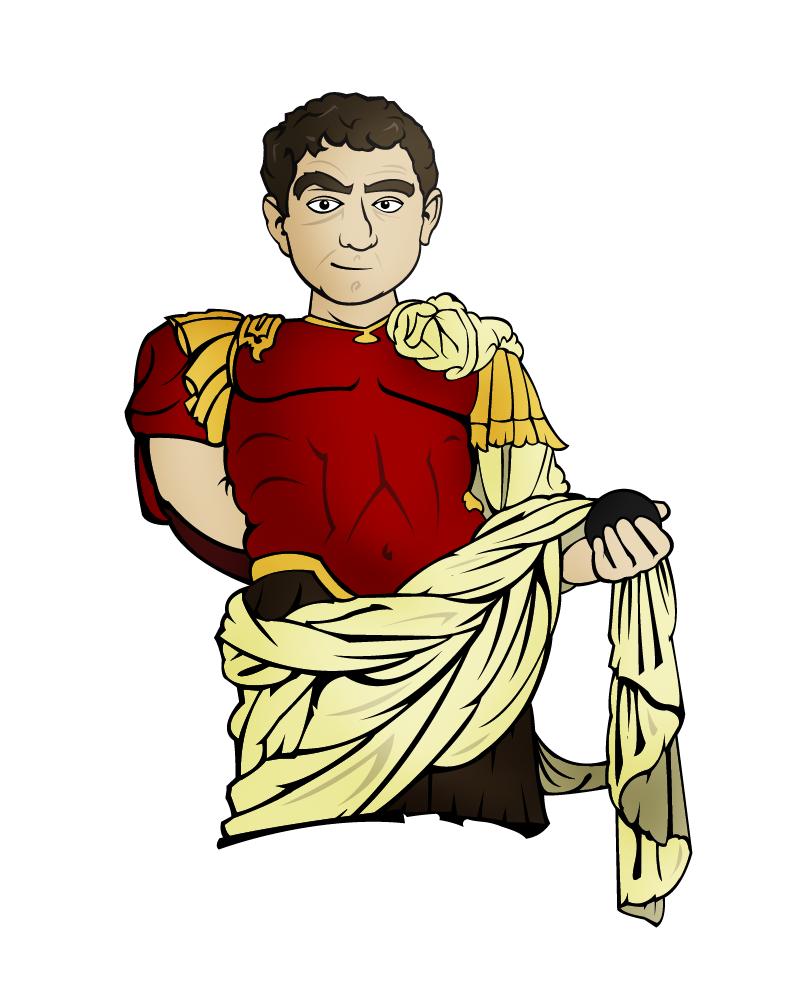 |
Titus Flavius Caesar Domitianus Augustus |
|
28.2 |


